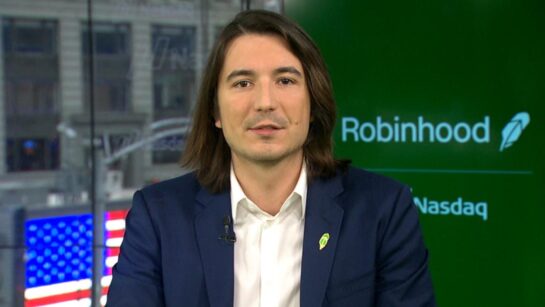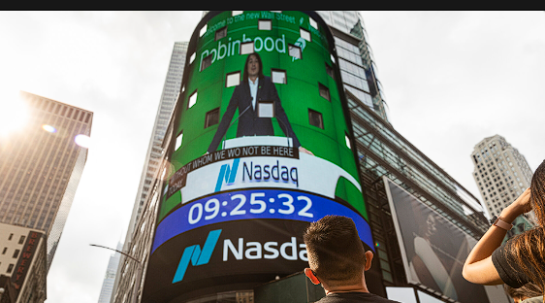Company Profile and History

Robinhood, the popular trading app, has had a turbulent yet transformative history since its inception.
Early Days: Founded in 2013 by Vladimir Tenev and Baiju Bhatt, Robinhood aimed to democratize finance by offering commission-free trading to retail investors. It quickly gained popularity for its user-friendly interface and accessibility, attracting a young and tech-savvy user base.
 Initial Success: Robinhood’s early success was fueled by its simplicity and the novelty of commission-free trading, disrupting traditional brokerage models. Its intuitive mobile app and the ability to trade fractional shares made investing more accessible to a broader audience.
Initial Success: Robinhood’s early success was fueled by its simplicity and the novelty of commission-free trading, disrupting traditional brokerage models. Its intuitive mobile app and the ability to trade fractional shares made investing more accessible to a broader audience.
Expansion and Challenges: As Robinhood grew, it faced various challenges, including regulatory scrutiny, technological glitches, and criticism for its gamification of trading. The app’s interface, which used elements like confetti animations to celebrate trades, attracted both praise and concern for potentially encouraging risky behavior.
GameStop Saga: One of the most notable events in Robinhood’s history occurred in January 2021 during the GameStop short squeeze. As retail investors, organized through online forums like Reddit’s WallStreetBets, drove up the stock price of GameStop, Robinhood faced backlash for temporarily restricting trading in GameStop and other volatile stocks. Critics accused the company of favoring Wall Street interests over its users.
 Regulatory Scrutiny: Robinhood’s handling of the GameStop saga intensified regulatory scrutiny. Lawmakers questioned the app’s business model and its impact on market volatility and retail investors. Robinhood executives testified before Congress, and regulatory agencies launched investigations into the company’s practices.
Regulatory Scrutiny: Robinhood’s handling of the GameStop saga intensified regulatory scrutiny. Lawmakers questioned the app’s business model and its impact on market volatility and retail investors. Robinhood executives testified before Congress, and regulatory agencies launched investigations into the company’s practices.
Recent Developments: Despite the controversies, Robinhood continued to grow and evolve. It expanded its product offerings beyond equities to include cryptocurrencies and options trading. The company also faced challenges related to cybersecurity and infrastructure as it scaled its operations.
Present Day: As of my last update, Robinhood remains a dominant force in the retail trading space. Its user base continues to grow, fueled by market volatility, increased interest in investing among young people, and the ease of access provided by its platform. However, the company faces ongoing challenges related to regulatory compliance, customer trust, and competition from other brokerage firms and fintech startups.
Overall, Robinhood’s history is a testament to the power of technology to disrupt traditional industries and empower individual investors, while also highlighting the complexities and risks associated with democratizing finance.
Board of Director
-
- Vlad Tenev (Chair): Co-Founder, CEO & President (Role: Leads company strategy, operations, and overall direction)
- Baiju Bhatt: Co-Founder (Role: Previously served as Co-CEO and Co-President, current role unspecified)
- Jon Rubinstein (Lead Independent Director): Senior Advisor at PDT Partners (Role: Provides independent oversight and guidance to the board)
- Susan Segal: (Role: Specific responsibilities not publicly available)
- Paula Loop: Senior Advisor at PDT Partners (Role: Offers financial services expertise and guidance)
- Robert Zoellick: Senior Fellow at the Belfer Center for Science and International Affairs (Role: Contributes experience in international affairs and economics)
- Dara Treseder: (Role: Specific responsibilities not publicly available, likely related to marketing and communications)
- Frances Frei: Professor at Harvard Business School (Role: Advises on technology and operations management)
- Meyer Malka: (Role: Specific area of contribution not publicly available)
